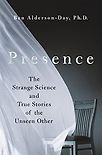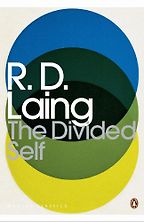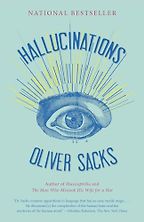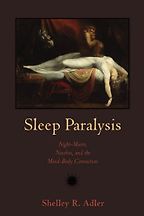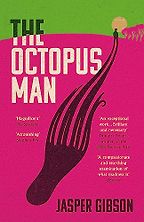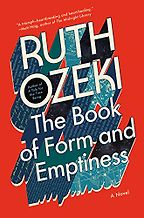Before we look at the books you’ve chosen to recommend, I think we need a definition of ‘hallucination.’ It’s a more complex and contested term than a lot of people realise, isn’t it?
Absolutely. The classic definition of hallucination is that you’re having a sensory or perceptual experience without a corresponding external stimulus: there’s not something out there in the world to produce the sensory experience you’re having right now. That’s usually contrasted with an illusion of, say, a mirage in the desert, where the heat creates the haze that we mistake for water. With hallucinations, technically nothing is there and yet we’re perceiving something. Various academic definitions add layers onto that, such as: it’s got to have a sense of reality, you’ve got to really feel it’s there, it’s got to be out of your control.
It is a very contested term. So, for people who are regularly having experiences like hearing voices that other people can’t hear, hallucination is a very technical, medical term, and built into it is this idea that you’ve made a mistake about how you perceive the world. For a lot of people, that’s undermining. That’s not validating their experience. Because it feels real to them, it’s part of their reality.
“States of madness can arise from thoughts, feelings and processes that we can all identify with in some way”
It’s still a commonly used term because it’s the best term that we have. But it’s imperfect and problematic in various ways. And the key thing about it, as we’ll discuss, is that it happens in lots of different contexts. So, the term hallucination might feel problematic for people who have experienced psychosis and schizophrenia and been through the mental health system; grassroots movements have claimed different terms instead. But the discourse is very different around, say, people who experience hallucinations because of Parkinson’s.
The first book on your reading list is The Divided Self by RD Laing. I wondered what this book taught you about hallucination and how it has shaped your approach?
It was the first book I ever read about psychosis and schizophrenia, which is what most people would think about when they think about voices, visions, and hallucinations. And it had quite a profound effect on me as a teenager, just as I was starting to study psychology. It really changed how I thought, because Laing’s project is to make the un-understandable understandable, to show how states of madness can arise from thoughts, feelings and processes that we can all identify with in some way. That’s not to trivialise states of madness, but to pull them back within the fold and say that this is a part of human experience and understandable.
Laing’s a controversial figure. After writing The Divided Self he went off in a direction that lots of people disagree with and is typically described as anti-psychiatry. But this is his first book—it was published in 1960—and it’s his first reaction to what he thought were misunderstandings and injustices inherent in how we treat and understand madness. It’s very much influenced by the existential philosophy of the time, thinking about how the self changes in relation to the world.
Whenever I speak to people who identify as critical psychiatrists or critical psychologists, they cite Laing as an inspiration. But does The Divided Self also resonate with people who would not describe themselves as critical of the mental health mainstream?
Yes, I wouldn’t be described as someone who takes that critical position in psychology. I know of people from a range of backgrounds who have found Laing’s ideas if not inspirational then at least thought-provoking, in terms of thinking differently about this field. You don’t have to agree with all the arguments that come out of his critical position, and indeed much of it might not be quite right.
For example, one of the criticisms levelled at him, even at the time, was that Laing puts too much causal weight and responsibility for madness on families, on parents, which can be damaging in other ways. In a similar way, at that time you had a predominantly psychoanalytically-informed understanding of autism which suggested that it was the result of a lack parental care, the ‘refrigerator mother’ idea, which I would never, ever endorse.
So the way I read Laing, and the way a lot of people I speak to read Laing, is as a kind of provocation—a starting point for discussion—rather than the gospel truth.
Oliver Sacks described his book Hallucinations as ‘a natural history of hallucination,’ because he’s specifically interested in hallucinations that aren’t associated with mental illness. In it, he writes that in other cultures there is much more openness to the idea of hallucinating, and for that reason they find hallucination much less scary than we do here in the West.
Yes. That’s an argument Sacks makes, and more recently people like Tanya Luhrmann, a cultural anthropologist at Stanford, have done a lot of work on comparing different cultural models of hallucination and showing how it shapes people’s experience of unusual phenomena. So, for example, if you think it’s not possible that other people’s thoughts and ideas can get into your head, then it’s going to feel all the more violating when someone speaks in your head.
But Sacks in Hallucinations makes very clear that this book isn’t about schizophrenia or psychosis, it’s almost a catalogue of all the other forms of hallucination, the panoply of illusory phenomena out there, which is much broader than people appreciate.
“The boundaries between fictional worlds and the real world is much more porous and malleable than we might appreciate”
Most of what we know about hallucinatory experiences still comes from psychosis and schizophrenia, but in terms of the range of different ways we can perceive the world differently, it’s all there in Sacks’s book. Compared to some of his earlier work it’s less autobiographical and story based. There are just lots and lots of examples. But the sheer breadth of it is really useful for understanding the different ways in which people might have hallucinatory experiences, whether it’s in survival situations, grief, endurance sports or neurological disorders.
Which parts of this catalogue appealed to you?
It’s the parts where it gets more personal and he writes from his own experience. You’ve got these great stories from psychiatrists and psychologists in the 1960s and 1970s whose interests in altered states extended to them trying out different drugs, and Sacks has got—slightly alarmingly—multiple examples of him trying out various things and becoming a bit worse for wear. At one point he ends up overdosing on chloral hydrate, which he takes to sleep, and giving himself delirium tremens. His discussion of migraine, and the visual experiences that come with that, is fascinating. Visual disturbance as a consequence of migraine is actually very common, often not very well understood, often not very well controlled, and can have a profound effect on people.
The next book on hallucination that you’ve chosen to recommend—Shelley Adler’s Sleep Paralysis: Night-mares, Nocebos and the Mind-Body Connection—opens with the mystery of a series of sudden deaths due to cardiac arrest among young men who emigrated to the US, which they themselves blamed on the visitation of a night terror. How do you interpret what happened?
One of the most common hallucinatory experiences that people can have occurs around the boundaries of sleep, what we call hypnagogia. And the state in particular that can induce this is sleep paralysis, when you wake up but your muscles are still paralysed. There’s something about this state that seems to produce a range of hallucinatory phenomena, including feelings of presence, something I’ve written about in my book, Presence: The Strange Science and True Stories of the Unknown Other. These presences often seem to be very malevolent, and we have accounts of them from across cultures, all around the world, almost every society has its own name for this evil presence that comes at night.
The case that Shelley Adler writes about is very striking. It relates to a spate of overnight deaths among young Hmong immigrants in the 1980s that seemed to be in response to a visitation from an evil spirit they called the tsog tsuam. This spirit would visit people if they’d done something wrong and needed to appease their elders in some way. The story of the young men’s deaths is really a demonstration of how powerful our expectations can be and how powerful cultural influences can be on both the experience of hallucination and the knock-on effects. As Adler describes it, the tsog tsuam would usually visit men in the family and if this happened at home the man—usually the father or leading man in the family—would visit a shaman to talk about what needs to be done to appease the elders. If they didn’t do that, they believed the tsog tsuam would come back and things will get worse. But, crucially, immigrant families who had fled the Vietnam War couldn’t visit the shaman. So, these transplanted communities, away from their usual cultural frames and under the stress of being refugees, have these unusual experiences, and don’t have their usual way of managing them, and things spiral from there.
There’s still a debate around whether such ideas could be powerful enough to cause someone’s heart to stop. But the more we learn about the interaction between our bodily experiences and our perception of the world, the more we realise they are very interconnected. Experiments have shown that our judgements about what we perceive are closely linked to how we are feeling inside. If I were to show you a disgusted face— very quickly so you weren’t aware you had seen it—your heart rate would change, ever so slightly. That in turn changes how confident you are about your senses. So, in an unusual situation, you might be more likely to see things that aren’t there. How we are feeling inside can change what we think we are seeing, hearing, or sensing.
I wondered if you could say a bit more about your work and writing on ‘presence.’ It shows that a hallucination might not simply be a voice or a vision—perhaps suggesting that the way we traditionally think about hallucination is too narrow?
Yes, ‘presence’ is a word people land on when ‘voice’ or ‘vision’ doesn’t quite cut it. I came across the idea through my work at Durham’s ‘Hearing the Voice‘ research project, where we regularly talk to people who hear voices, and more than one of the interviewees would say, ‘you know, it’s not just about sound.’ You can have the experience of an entity or a person who is close by, who is not making a sound but you just feel them.
When you think about presences they pose a challenge: there’s this paradox of how do you perceive something you can’t see or hear or touch, it’s just something you seem to feel in your bones. But by calling it presence, you can see that people experience felt presences in a panoply of examples across different contexts, whether it’s due to dementia, or Parkinson’s, or grief and bereavement. One of the more profound examples is in survival situations and the phenomenon of Shackleton’s ‘third man‘: the fact that all three members of Ernest Shackleton’s Antarctic rescue mission reported an uncanny feeling during their perilous trek that they were four men, not three.
The evidence from neurology and case studies of people who have damaged their brain suggests that presences could be caused by changing the body’s expectation of where it is in space, changes to our usual cues of proprioception—but the jury is out on that, and it only applies to some cases, such as perhaps sleep paralysis.
I wanted to move onto the fiction books you chose to highlight, including The Octopus Man by Jasper Gibson. In this book, the central character—a lawyer called Tom who hears voices—is given a choice between suppressing his voices with medication but diminishing himself, or continuing to serve the octopus god that he hears. Is this reflective of the real choices people who hear voices have to make?
I wouldn’t say it’s fully exaggerated, but it’s not the case that everyone who hears voices is having experiences like Tom. However I do think something about the choice presented there is true to life: the aims of the medical team might be very different from the aims of the person having these hallucinatory experiences. They might have lived with these experiences for a long time and have come to their own meaning and understanding about them, and they might experience a range of emotions relating to them.
Malamock, the octopus god, makes Tom feel like he has a mission. There’s something compelling about that and he can’t step away. And when faced with something that can remove part of your experience, part of your way of experiencing the world, that can be difficult for some people. I don’t think that’s always the case for people who have only just started having these experiences, and I’ve talked to a lot of people using psychosis services for the first time who just want things to stop, they just want things to make sense. But for other people, there’s a lot of deep meaning in their voice-hearing experiences.
I would also say, however, that there are very few treatments that will completely get rid of these experiences. Often anti-psychotics won’t actually stop hallucinatory experiences, but they might make them less frequent. They might be a little less loud, or make them a bit more manageable.
Lots of reviewers felt that Tom suffered for losing his voices, and they were critical of how psychiatrists treated him. Which is interesting; most people would otherwise instinctively resist the idea that psychiatrists shouldn’t rid people of unusual voices and beliefs. What role do you think fiction can play in changing how we think about and treat psychosis?
We’re talking about experiences that are so unusual and foreign to most people that having accounts of what it can be like to hear voices—that are sensitive to the nuances and don’t alarm or stereotype—is really important. It’s important that The Octopus Man is a funny book. The voice-hearer, Tom, is funny in his reaction to things. I’ve spoken to people before who say their voices can make them laugh, that there’s a spontaneity and playfulness about some of these experiences too. That’s not to say that it’s always like that. More that there’s a range of emotions associated with these internal worlds and these hallucinatory things going on. If fiction can help people understand that complexity and ambiguity, that’s one step towards people’s default reaction no longer being one of alarm.
We’ve done research before about how even within close-knit families, the priorities of parents might be very different from the priorities of young people who are hearing voices. The parents might think we’ve got to find an answer, we’ve got to explain it, and the young people might think it’s about getting on with your life and learning to manage it.
Finally, you’ve The Book of Form and Emptiness, the Women’s Prize-winning novel by Ruth Ozeki. What appealed to you about how Ozeki writes about hallucination and the hearing of voices in this book?
This book does two things really well. The first is shifting to the hallucinatory world to the context of loss and grief. Lots of people experience these sorts of things following the loss of a loved one, and that happens to Benny as well. Secondly, this is a book about books. It’s steeped in books, much of it unfolds in a library, and in a way it’s about how we create different worlds constantly. We can move between them, and they shape how we think. The boundaries between these fictional worlds and the real world is much more porous and malleable than we might appreciate.
I’ve done work previously as part of ‘Hearing the Voice’ with readers and writers where writers talk about characters that end up talking for themselves and readers talk about characters who keep speaking to them after the book has finished or stay with them in some way. The ways in which we engage with fiction to create very, very complex imaginary worlds is one of the most startling things the human mind can do. And it’s still a relatively misunderstood phenomenon.
Interview by Sophie McBain
February 22, 2024. Updated: March 2, 2024
Five Books aims to keep its book recommendations and interviews up to date. If you are the interviewee and would like to update your choice of books (or even just what you say about them) please email us at [email protected]
Five Books interviews are expensive to produce. If you've enjoyed this interview, please support us by donating a small amount.

